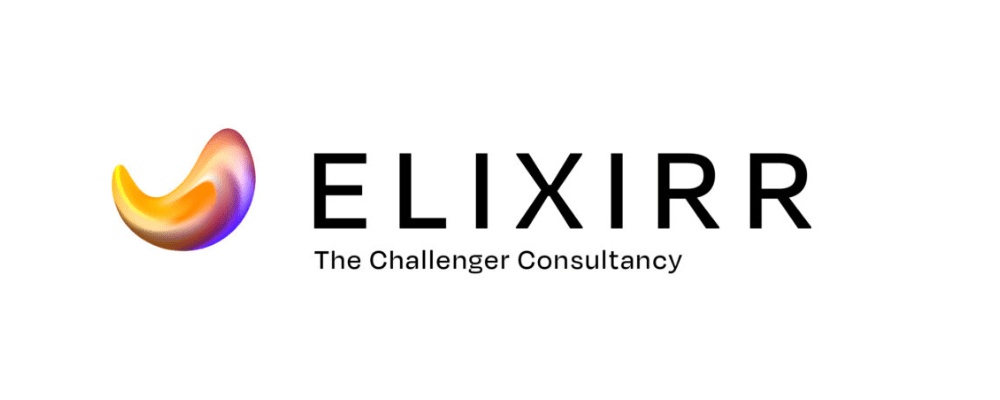Creating a vision and developing the strategy. Forming a plan and implementing the processes. Working with a group of like-minded people to achieve one goal.
At its core, these three sentences can describe both a business and a sports team. Whilst the day-to-day successes of a sports team are of public interest, the inner workings of a company are not often discussed – it’s all about the finished product. However, when the brand-new iPhone turns up on your doorstep and a free-kick is scored by your favourite football player on the weekend, these are both the product of thousands of hours of research and development.
Whilst drawing a comparison between sport and business is a path well-trodden, read on for a more nuanced, first-hand take on the parallels of working for a challenger consultancy whilst playing sport internationally for a challenger country – both causing ripples that are making the big players take notice.

The business challenge
The concept of challenger brands has been widely documented in legacy industries disrupted by innovation; think of the competition faced by high-street banks and news outlets, in a landscape where consumer sophistication and expectations are constantly rising. Providing a bespoke product or service, aimed entirely at the needs of the customer, is enabling new businesses to alter the existing landscape and shake up the status quo.
Elixirr’s “rags to riches” story has earned them the status of a ‘challenger consultancy’, a badge worn with pride and very much at the heart of the firm’s growth ambitions for the future. Founded only in 2009, Elixirr achieved the title of ‘Best New Consultancy’ within 5 years; was named one of the UK’s leading management consultants within 9 years; and became publicly listed just 3 years later in 2020.
There are many challenges that come with being the challenger. The early days are littered with doubt, imposter syndrome and the battle to steer a ship through waters where onlookers are certain the chance of wreckage is actually more of an inevitability. It isn’t easy going up against household brands – consultancies with over 100 years of credentials behind their name and finances to swallow up any mistakes made, whether that’s in recruitment, delivery or negative PR. Whilst building a challenger, you cannot afford to make these mistakes – the margins for error are so small if you want a seat at the table. And as the door is automatically open for the big players, the challenger is expected to prove why they deserve a seat time and time again.
This is achieved by overdelivering for clients, developing meaningful relationships and instigating real change – an effort that requires a firm of entrepreneurial minds who welcome the challenge. Until finally, others stop asking who you are, and your relatively short history of excellence allows for that door to creep open slightly more each day. That’s when the challenger brand is here to stay.
The sporting challenge
Team sports: where the team’s success is a product of the inputs and effort of the individual, applied collectively. Rallying around a vision, strategy and goal can catapult you up the world rankings, but only so far – sport is dominated by money, look at the big 6 in the English football premier league. Money is everything, and without it, you will always hit a ceiling on how far you can go – and that ceiling is not made of glass.
Jamaica, a well-renowned sporting nation, is famous for its world-class sprinters, football players and cricketers alike. Considered to be small but mighty, it’s a third-world country with only 2.8 million people yet continues to punch well above its weight in global competitions, on what would be considered a shoestring budget alongside the titans of the sporting world.
Having chosen to represent Jamaica at Rugby 7s in 2013, I joined a programme that was yet to benefit from the impacts of playing at the top level. With only one international tournament a year and coming 9th in the region, the opportunity for growth was essentially non-existent. However, since that day, Jamaica Rugby has found itself on a trajectory that only a small group could envisage into reality.
This vision, held by like-minded individuals took us from that 9th place to consistently coming 1st in the region and leading to a multitude of history-making appearances for the nation; like becoming the first Caribbean nation to appear at a Rugby World Cup before re-qualifying again four years later, as the only Jamaican men’s team sport in history to appear in two World Cups.
Going from playing one regional tournament a year to up to 10 annually across the globe has required a major upheaval in the core pillars of culture, processes and talent acquisition. It’s a drastic transition from getting that first ‘seat’ at the table and frequently hearing “Jamaica have a rugby team?”, to consistently being compared to the famous Jamaican bobsleigh story ‘Cool Runnings’, to competing at the top level against Tier 1 nations – some of which have the biggest global brands as their main sponsors.
Whilst these inequalities continue to widen the gap between the challengers and the Tier 1 nations, attempts are being made to turn the aforementioned ceiling to glass. The efforts, growth and success of the challengers has forced world rugby to create a new competition – the quite aptly named World Rugby Challenger Series – which gifts the winner a way onto the top table, providing hope for that door to creep open slightly more each day.
Pillars of Success
In being part of both a challenger business and a challenger sports team, I’ve learnt that success is built on shared vital foundations, and with the same core pillars maintained.
A collective goal, individual targets
Focus a group of people on a particular goal, which is supported by robust planning, implementation and execution strategies. Whilst it is important to rally around a shared goal, businesses and sports teams are a product of the individuals within. Setting individual targets and maintaining a people-first mantra is crucial to long-term success.
Culture
Building and sustaining an enviable culture is at the core of becoming a successful challenger. Talent is one thing, but individuals have to believe in what they are doing and ultimately buy into showing up with their best selves every day. Whether that is to training or to the office, culture is what keeps people motivated to deliver on the collective goal.
Ways of working
Repeatable processes and agile feedback loops form a system whereby continuous improvement provide the foundations for success. To compete with the best, you need to lean into your super strengths whilst making incremental changes, learn from past experiences and become 1% better every day.
Talent acquisition & development
When building out the team, each person should serve a distinct, valuable role to contribute to the greater goal – bringing their own talent, experience and perspective to ensure the highest level of performance collectively. But each should also come with the hunger to continually develop both themselves and those around them – and it’s critical to put measures in place to support this. Both a business and a team are only as strong as their weakest link – so a relentless focus on maintaining standards, despite growth or perceived challenges, is crucial to keeping that quality bar high and continued success.
It is by maintaining these pillars that challengers of both sport and business make the noise necessary to force the dominant players to sit down and truly listen.
“We help senior business leaders turn ideas into actions. Of course, it’s execution that determines success; that’s why we also make change happen, treating our clients’ business like our own.
Our people make our firm. And while our team expands across the globe, we continue to attract the best talent in the industry, building a team of high performing, like-minded individuals who share our vision of building the best consulting firm in the world.
With the launch of our ESPP scheme in 2021, we gave our entire team the opportunity to be part owners of Elixirr — and with a 74% enrolment rate for 2022, entrepreneurialism has never been more embedded into our business.”
Please visit the firm link to site


